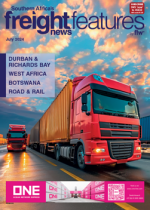Legislative change is gaining momentum with the approval of the Climate Change Bill, poised to result in significant changes in the road freight sector.The Bill is South Africa’s first attempt at a comprehensive piece of legislation intended to encourage the development of an effective climate change response for the country. It has been approved by the National Assembly and the National Council of Provinces and is awaiting the President’s signature to become law.According to Liesl de Wet, chairperson of the Road Freight Association’s (RFA) green transport group, this legislation aims to transition the country to a greener and more resilient economy and aligns South Africa with ongoing global efforts to reduce greenhouse gas emissions (GHG).“It is an overarching bill that provides the country with a good framework and roadmap to transition to a low-carbon and climate-resilient economy,” she said.South Africa, having signed the Paris Climate Agreement, is legally bound to cut emissions between 350 and 420 million tonnes by 2030 from 442 million tonnes in 2020. The country is currently the world’s 11th biggest greenhouse gas emitter and is considered to have one of the world’s highest per capita emissions.Despite reports that South Africa may not meet its reduction targets if it continues to operate its coal-fired power plants longer than planned, De Wet says the road freight sector can expect sectoral targets as the government has initiated talks with various industry sectors."It remains unclear what these targets will look like and how they will impact the road freight sector specifically, as transport is still treated as one industry. What we do know is that emission targets are coming our way and are linked to a net-zero future. This is a difficult topic for our sector, and it will not be easy as the path to net zero is not cle a r."According to climate experts, the transport sector in South Africa is responsible for between 11% and 14% of the country's carbon dioxide emissions, with road transport contributing an overwhelming 90% of this total."There are three focus areas for our sector when it comes to reducing emissions," said De Wet. "Technology, modal shift, and alternative fuels. The government is emphasising a modal shift, calling for more cargo to move from road to rail. We have seen significant developments in technology, and electric vehicles are becoming much more prevalent. There have also been major improvements in charging t e ch nolog y."She noted that the introduction of electric vehicles for road freight in South Africa would take time. "A lot of development is happening. There are now vehicles available that can be charged in as little as 30 minutes. This will definitely impact trucking, especially for last-mile deliveries."For cross-country and heavy-duty transport in South Africa, De Wet believes the solution to a greener future likely lies in alternative fuels.“All predictions point to hydrogen and there is a lot of development happening globally on this front,” she said, indicating that it is no longer a “pie in the sky” concept but is rapidly moving towards becoming a mainstream fuel option. “This progress will inevitably filter into our environment.”

